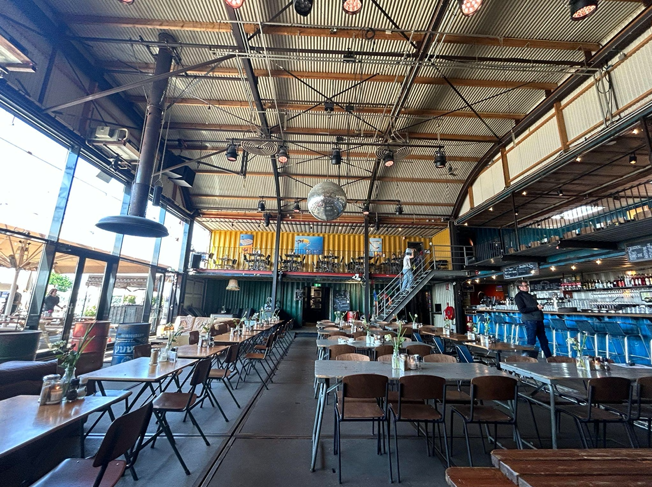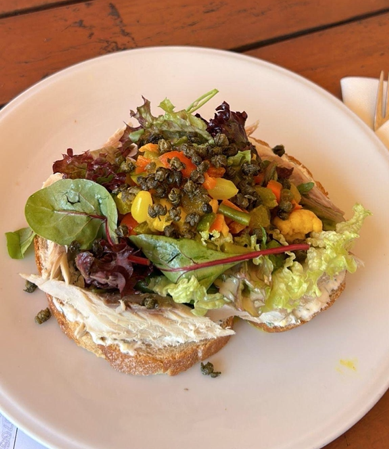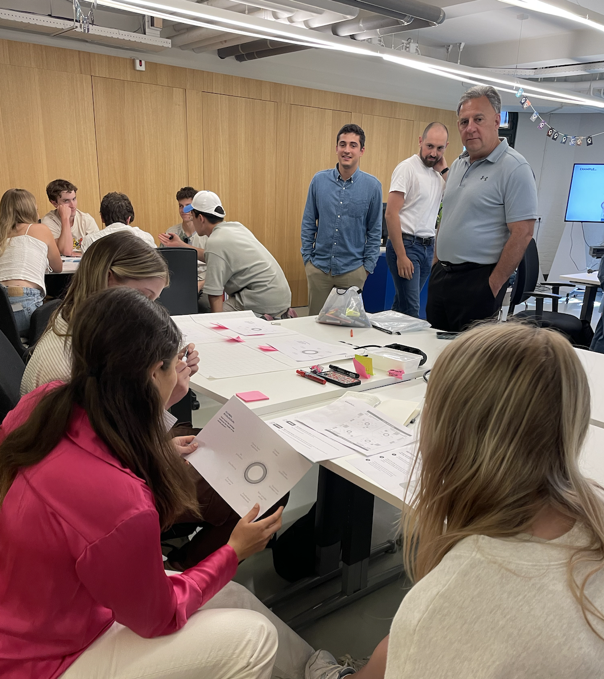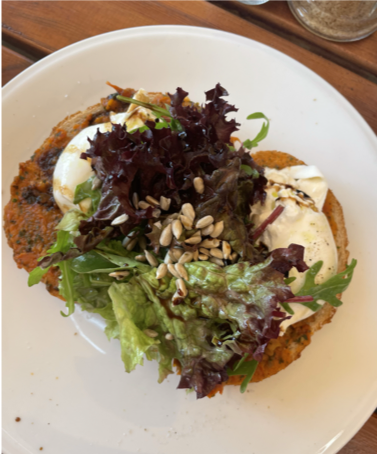Amsterdam: Global Leader in City-wide Circularity and Sustainability
June 28, 2023
Today Burch students journeyed to Amsterdam, the capital of the Netherlands and a current global leader in city-wide circularity and sustainability efforts. More specifically, Amsterdam has embraced the model of economic affairs known as “Donut Economics”- a concept created by Kate Raworth in 2012 that aims to maximize social well-being while minimizing society’s environmental damage by creating a framework for decision-making. After the hour train ride from Rotterdam to Amsterdam, we got to see this concept in action by grabbing lunch at PLLEK, the self-proclaimed “largest green restaurant in Amsterdam.” Not only was the building constructed from recycled cargo units, but the menu also reflects a commitment to the environment with at least 75% of dishes being vegetarian and 25% vegan.
As I looked over the menu, I found the lack of meat options surprising, as often meat-centered dishes make up at least half of most restaurant menus in the US. I think, PLLEK’s goal to create a transparent supply chain, one that focuses on sustainability, from the farm to the table, is incredibly inspiring. Moving forward, other restaurants can adopt these values as a means to not only decrease their carbon footprint but also ensure their customers are getting the most nutritious and delicious food possible.

After eating, we took a quick five-minute ferry across the bustling port back to mainland Amsterdam. The goal now was to head to the SDG (Sustainable Development Goals) House to learn about the concept of Donut economics, and specifically how Amsterdam is using this framework to make decisions that move the city to one that lies between the social foundation and ecological ceiling that Rawthorn described.
We were introduced to this concept by two researchers from Circle Economy. They discussed the challenge of transitioning from a linear structure to a more circular structure for Amsterdam. It’s well known that material use and consumption drive environmental degradation, and consumers usually take, make, use, and waste material goods. Doughnut economics focuses on redefining progress, growth, and well-being with the social foundation and ecological ceiling. Along with that, circular economies maximize well-being and social needs in a resource-light and low-carbon way.
Amsterdam specifically has created plans over the past decade for how they are striving to become more circular as a city. This includes mapping the city targets related to Doughnut economies, designing strategies with city officials and local businesses, revising targets against their vision, and enhancing the processes with a bottom-up approach.
We ended our Circle Economy visit by participating in a brief workshop to apply the concepts we learned about. After splitting into small groups, we identified an idea related to the circular economy and its local, global, social, and ecological effects. It was an excellent hands-on experience that allowed us to better understand how Donut economics can be used in our community.

For the rest of the day, we explored the city, walked to the Rijkmusuem, ate dinner by the canal, grabbed ice cream afterward of course, and took the train back to Rotterdam. There’s so much to love about Amsterdam, and we’re grateful to have been able to visit it. We’ll take these valuable lessons about circularity and the future of city economics back with us to Chapel Hill, and we were inspired by the work Amsterdam has done in this field.
About the Author
This article was written by Burch Scholars Caroline White ’26, Business Administration and Sustainability, and Nicky Coursey ’26, Environmental Studies.

